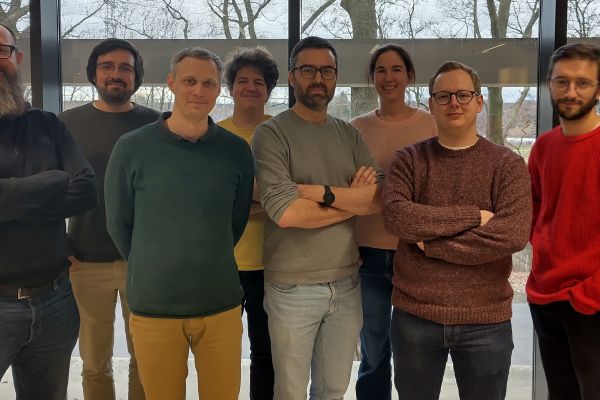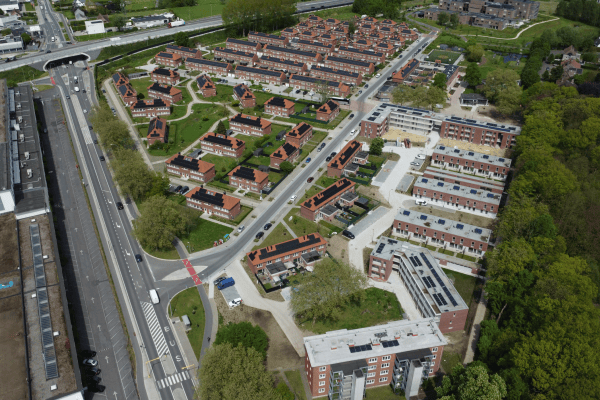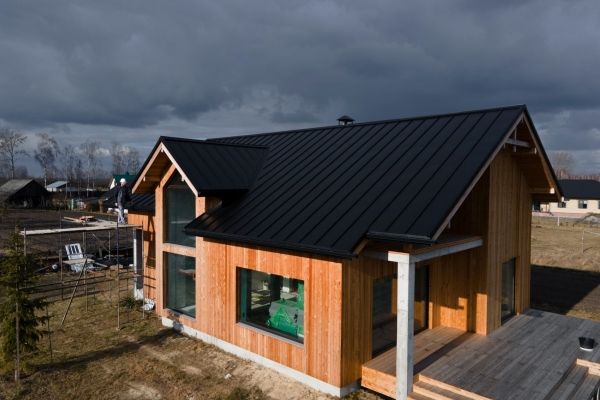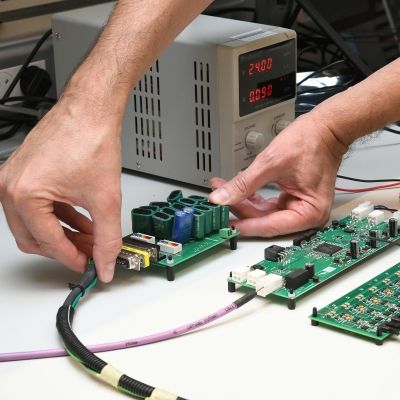VITO/EnergyVille and University of Rwanda form pioneering partnership to elevate sustinability, circularity, and climate services in Rwanda
VITO/EnergyVille has officially entered into a strategic partnership with the University of Rwanda, endorsed by the signing of a Memorandum of Understanding on 5 December 2023. This collaboration aims to promote sustainability, circularity, and climate services in Rwanda in order to address the challenges flowing from rapid urbanization and the anticipated doubling of the Rwandan population by 2050.
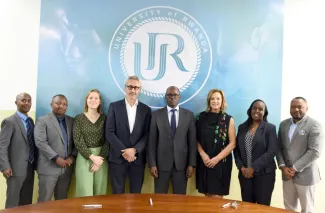
Dive into this article to discover the details of this strategic collaboration – including joint academic research, an innovative pilot project, and a shared vision for a sustainable and circular future in Rwanda’s built environment and construction sector.
Strategic Partnership for Sustainability
Kigali, 5 December 2023 – Today marks a significant milestone as VITO/EnergyVille officially signs a Memorandum of Understanding for cooperation with the University of Rwanda, thus announcing the start of a promising strategic partnership aimed at advancing sustainability, circularity and climate services in Rwanda: a partnership which aims to address the challenges posed by rapid urbanisation and to foster sustainable solutions as Rwanda’s population is expected to double by 2050.
The primary focus of the collaboration is to enhance sustainability and circularity in the country through joint academic research, development initiatives, and training programs. By using the latest circular economy innovations and measures, Rwanda aims to make its growing construction sector and economy more sustainable, aligning with local policies that prioritize economic diversification and industrialisation.

The Pilot Project
The signing of the Memorandum of Understanding follows a pilot project commissioned by Enabel – the development agency of the Belgian federal government. The project, led by VITO/EnergyVille in collaboration with Entrepreneurs for Entrepreneurs (OVO), has centered around circularity in the construction sector. The project’s high-level closing event in Kigali on 6 December 2023, will mark the culmination of efforts to explore and implement circular practices in Rwanda’s construction value chain.
The pilot project included an incubation track, in which ten local producers of building materials received coaching on circularity by a team of VITO/EnergyVille experts. This involved commercial scans, circularity scans, and life cycle assessments to provide advice on integrating circular practices into their operations. The insights gained from the pilot project will now be used to develop guidelines for Rwandan policymakers, facilitating the transition to a more sustainable and circular manner of doing business.
Words of Enthusiasm and Commitment
Carolin Spirinckx, Project Manager at VITO/EnergyVille, expressed enthusiasm about the collaboration with the University of Rwanda, stating:
“The collaboration is taking further shape with this signing. Our joint efforts – especially in the ongoing pilot project – have showcased the positive impact of collaboration between various stakeholders in Rwanda. The University of Rwanda’s active role has been instrumental in providing valuable insights and expertise, and has contributed significantly to the project’s strategic direction and implementation.”
Walter Eevers, Research and Development Director at VITO and Chair of the Board of EnergyVille, highlights the global significance of such partnerships, stating:
“International collaboration, supporting the deployment of solutions towards a more sustainable world, is part of VITO’s DNA. In this Memorandum of Understanding, we find further evidence of doing so with a knowledge partner who also has this drive to connect science with impact as a core value in its reason of existence. Additionally, we are convinced that this joint effort will also lead to the transfer of knowledge and experience to the next generations, which will also be of immense importance to keep our gathered insights connected to a vision for the future.”
Concerted Effort for Sustainable Development
The Memorandum of Understanding outlines the commitment between VITO/EnergyVille and the University of Rwanda to enhance sustainability and circularity in Rwanda’s built environment and construction sector. The collaboration includes joint academic research, proposals, and projects, as well as scientist exchanges, workshops, and training. It also aims to support climate strategies, capacity building, and knowledge sharing through the Circular Economy Action Plan.
In conclusion, this partnership signifies a concerted effort to drive sustainable development and address environmental and social challenges in Rwanda.
Want to know more?
To learn more about this leading partnership and our ongoing initiatives regarding circular construction in Rwanda, please visit the project page.
For further inquiries, feel free to reach out to our experts Carolin Spirinckx and Michiel Ritzen. They will be happy to provide more information.




